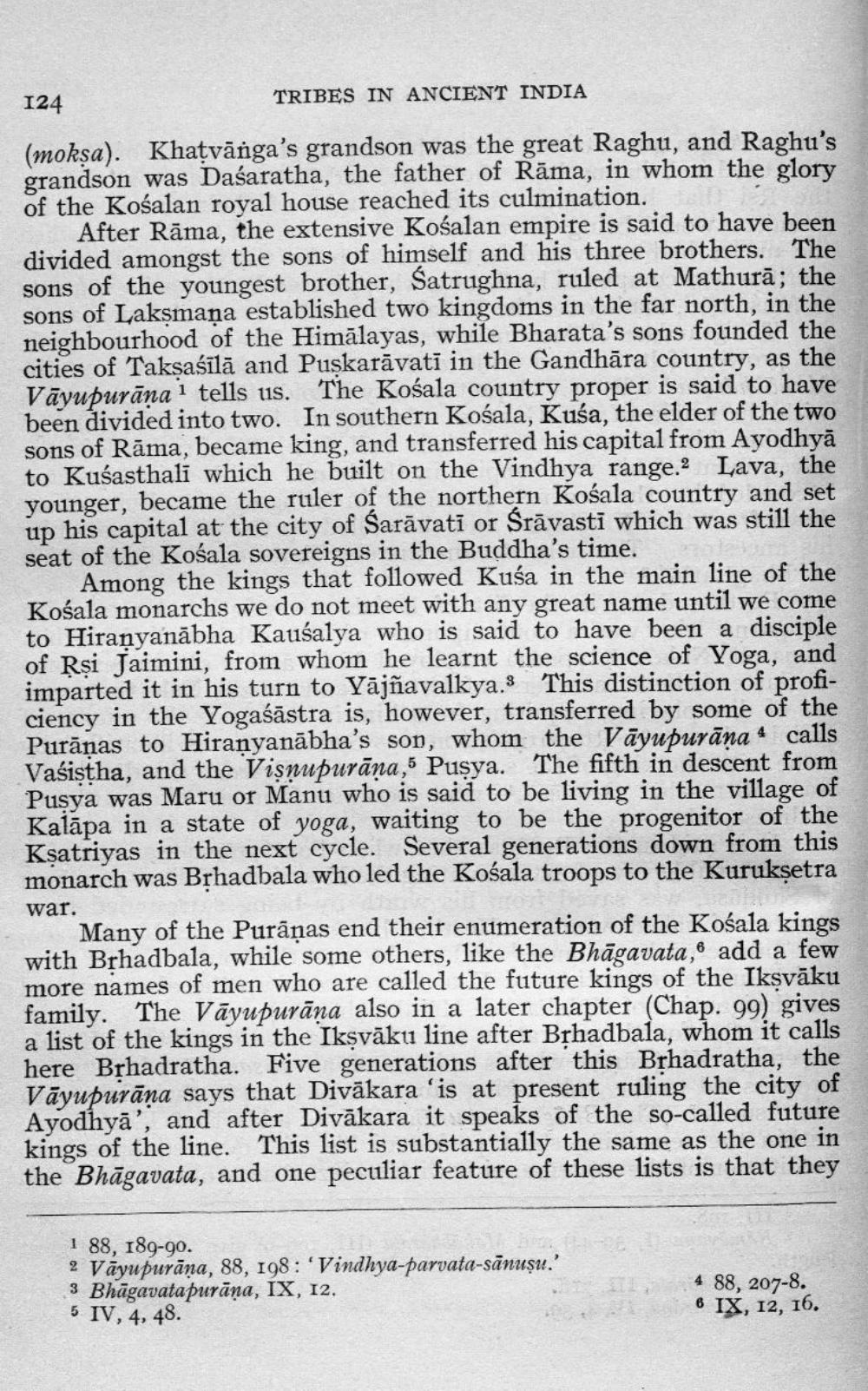________________
124
TRIBES IN ANCIENT INDIA
(mokṣa). Khaṭvānga's grandson was the great Raghu, and Raghu's grandson was Dasaratha, the father of Rama, in whom the glory of the Kośalan royal house reached its culmination.
After Rama, the extensive Kośalan empire is said to have been divided amongst the sons of himself and his three brothers. The sons of the youngest brother, Satrughna, ruled at Mathura; the sons of Lakṣmaṇa established two kingdoms in the far north, in the neighbourhood of the Himalayas, while Bharata's sons founded the cities of Taksaśila and Puskarāvati in the Gandhara country, as the Vayupurana tells us. The Kośala country proper is said to have been divided into two. In southern Kośala, Kuśa, the elder of the two sons of Rama, became king, and transferred his capital from Ayodhya to Kuśasthali which he built on the Vindhya range.2 Lava, the younger, became the ruler of the northern Kośala country and set up his capital at the city of Saravati or Śrāvasti which was still the seat of the Kosala sovereigns in the Buddha's time.
Among the kings that followed Kuśa in the main line of the Kośala monarchs we do not meet with any great name until we come to Hiranyanabha Kausalya who is said to have been a disciple of Rsi Jaimini, from whom he learnt the science of Yoga, and imparted it in his turn to Yajnavalkya. This distinction of proficiency in the Yogaśastra is, however, transferred by some of the Puranas to Hiranyanābha's son, whom the Vayupurana calls Vasistha, and the Visnupurana, Pusya. The fifth in descent from Pusya was Maru or Manu who is said to be living in the village of Kalapa in a state of yoga, waiting to be the progenitor of the Kṣatriyas in the next cycle. Several generations down from this monarch was Bṛhadbala who led the Kośala troops to the Kurukṣetra
war.
Many of the Puranas end their enumeration of the Kośala kings with Bṛhadbala, while some others, like the Bhagavata, add a few more names of men who are called the future kings of the Ikṣvāku family. The Vayupurana also in a later chapter (Chap. 99) gives a list of the kings in the Iksvaku line after Bṛhadbala, whom it calls here Brhadratha. Five generations after this Brhadratha, the Vayupurana says that Divakara 'is at present ruling the city of Ayodhya', and after Diväkara it speaks of the so-called future kings of the line. This list is substantially the same as the one in the Bhagavata, and one peculiar feature of these lists is that they
1 88, 189-90.
2 Vayupurana, 88, 198: 'Vindhya-parvata-sanusu.' 3 Bhagavatapurana, IX, 12.
5 IV, 4, 48.
4 88, 207-8. 6 IX, 12, 16.




